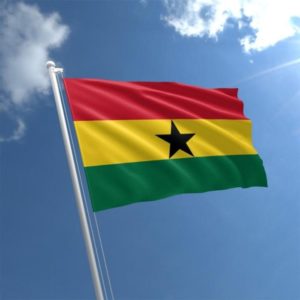
Accra, Ghana//-The Digital Cooperation Organisation (DCO), the international organisation dedicated to advancing inclusive and sustainable digital economies, has launched the Digital Economy Navigator 2025 (DEN 2025) at the Second World Summit for Social Development in Doha, Qatar.
The report highlights Ghana’s regional leadership in digital payments, broadband connectivity, and innovation policy, underscoring the country’s role as one of West Africa’s fastest-growing digital economies.
Covering 80 countries representing 94 per cent of global GDP and 85 per cent of the global population, the DEN 2025 is the most comprehensive global assessment of digital economy maturity.
Drawing on 145 indicators and insights from more than 41,000 respondents, it provides policymakers and industry leaders with a data-based understanding of how nations are expanding infrastructure, inclusion, and innovation in the digital era.
DCO Secretary-General Deemah AlYahya said the DEN 2025 illustrates both the progress already made and the opportunities ahead. Commenting on DEN 2025, she said: “The Digital Cooperation Organisation envisions a future where every nation can participate meaningfully in the digital economy, not only as consumers of digital services, but as creators and innovators.”
She added that collective effort will be essential to turn this potential into reality. “DEN 2025 is a reminder that our collective progress depends on decisive action.
We must move from measuring digital transformation to accelerating it, with governments adopting agile and forward-looking policies, businesses investing with purpose and responsibility, and societies embracing innovation as a force for inclusion. The cost of inaction is exclusion, but the rewards of collaboration are limitless.
If we work together across borders, sectors, and communities we can shape an inclusive, trusted, and sustainable digital future where every nation has the opportunity not only to participate, but to lead.”
According to the DEN 2025, Ghana recorded the largest increase in 4G coverage among all countries measured, up by 46.7%, supported by accelerated network rollout and pro-competition reforms.
The report also notes mobile money transactions surged by 51.8% in 2024, with improvements in interoperability, internet banking, real-time interbank payments, and point-of-sale usage.
The report highlights Ghana’s ongoing efforts to strengthen digital policy, innovation capacity, and entrepreneurship, noting that government–industry collaboration continues to expand access to training and digital services.
By combining connectivity infrastructure with an innovation-friendly policy environment, Ghana is positioning itself as a West African hub for digital commerce.
The DEN 2025 shows that digitalisation is creating new opportunities for growth across all income levels. Internet access now reaches more than four in five people globally, and lower-middle-income countries are recording the fastest progress.
The report estimates that connecting underserved communities could enable more than 1.3 billion people to benefit from digital banking and online services, driving broader participation in the digital economy.
Artificial intelligence continues to advance rapidly, and the new “Digital for Sustainability” pillar highlights how technology can support inclusive growth and environmental resilience.
The DCO notes that Ghana’s progress in financial inclusion and innovation reflects how coordinated regulation and open market policies can deliver measurable digital dividends.
The DCO encourages policymakers, the private sector, and development organisations to use the DEN 2025 as a framework for collaboration and informed policymaking. Ghana’s achievements in mobile payments, connectivity, and innovation demonstrate how Africa’s growing digital economies can drive inclusive growth through partnership, investment, and technology.


